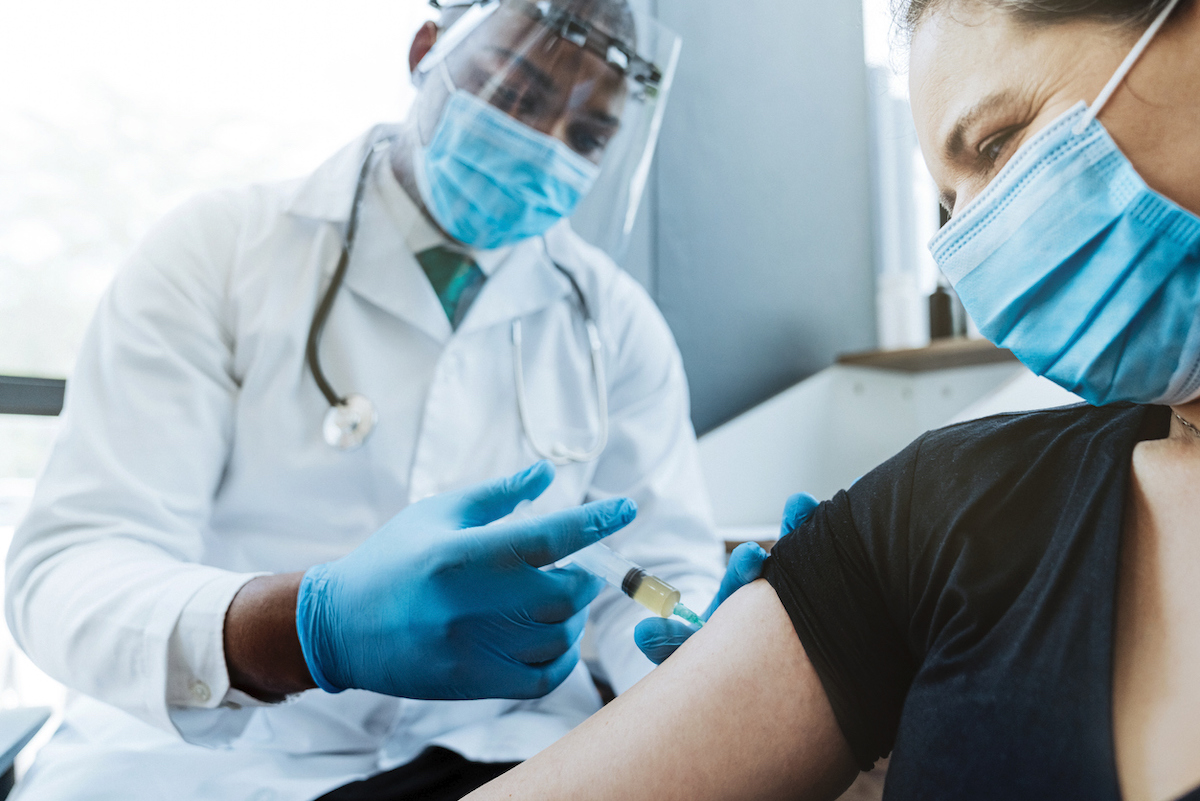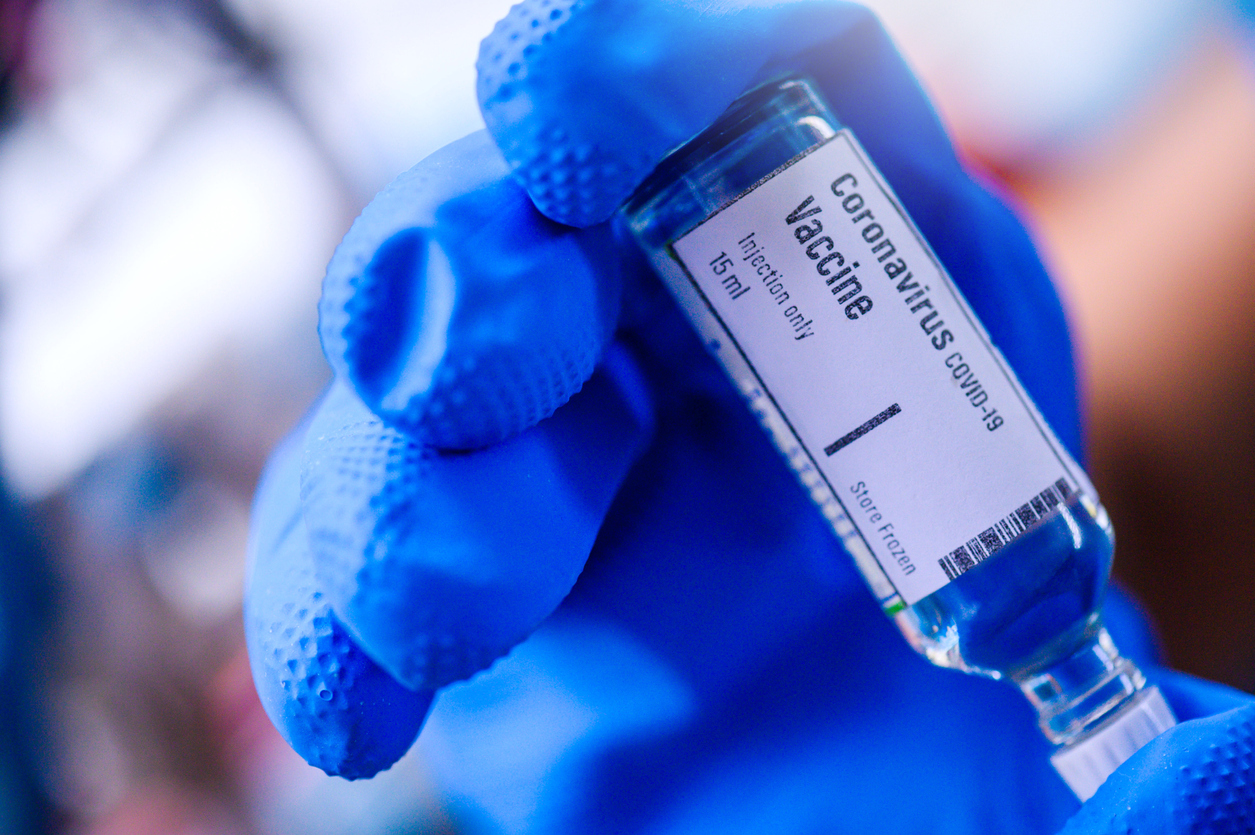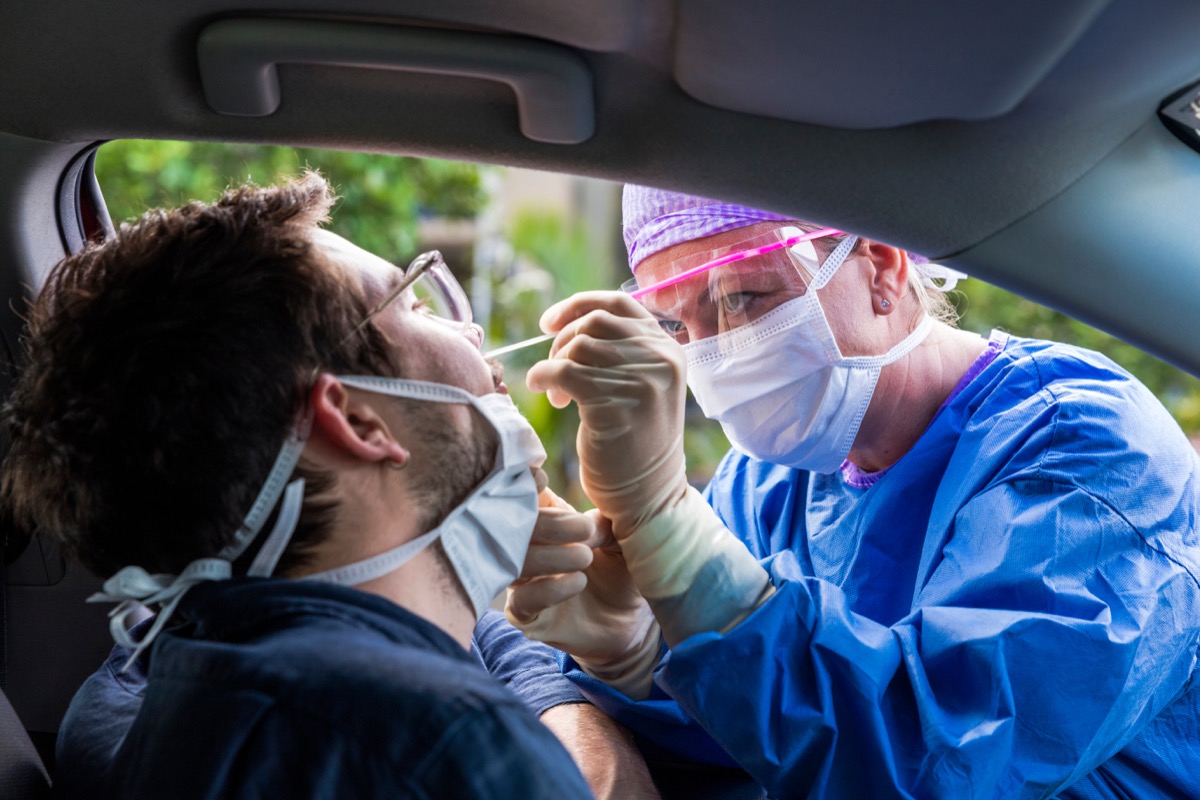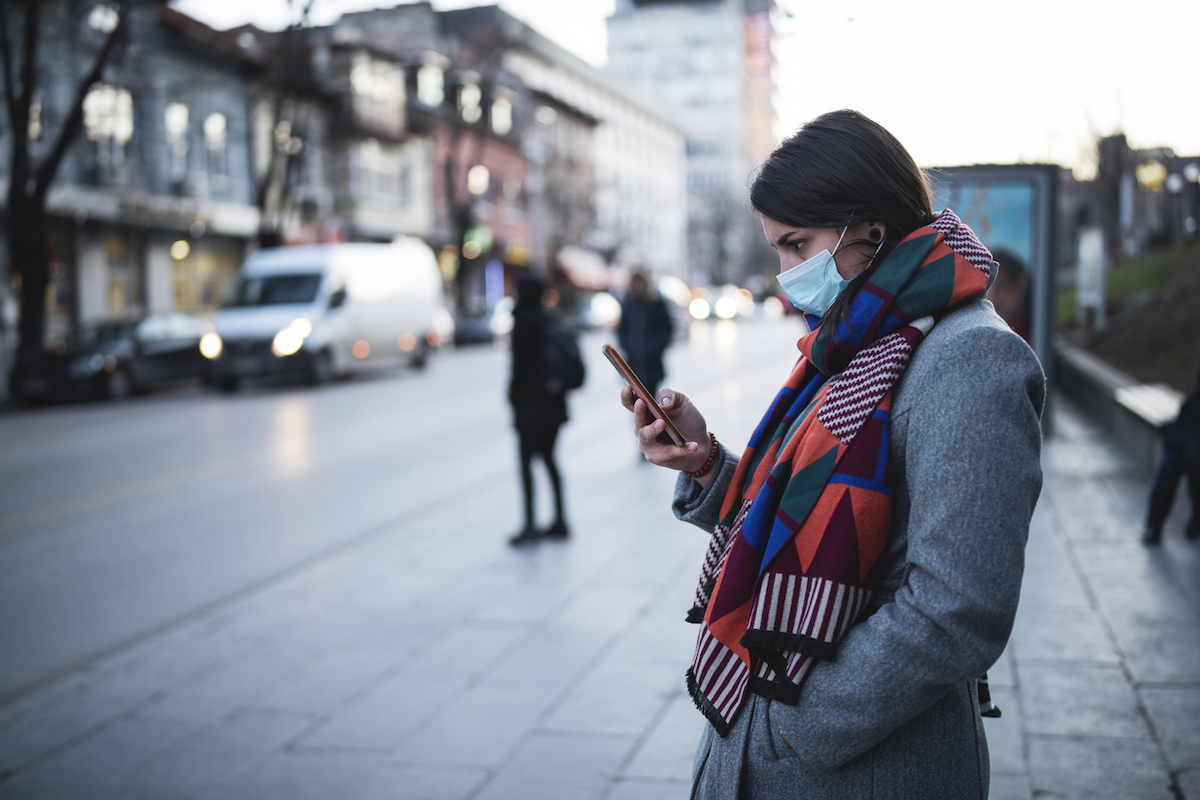Infectious disease specialist Christian Ramers, MD, told ABC News that “we know from the vaccine clinical trials that it’s going to take about 10 to 14 days for you to start to develop protection from the vaccine.” The Centers for Disease Control and Prevention (CDC) corroborates this on its site. “It typically takes a few weeks for the body to produce T-lymphocytes and B-lymphocytes after vaccination,” the CDC explains in its guidance. These lymphocytes are necessary to achieve immunity from the virus. “Therefore, it is possible that a person could be infected with the virus that causes COVID-19 just before or just after vaccination and then get sick because the vaccine did not have enough time to provide protection.” And for more up-to-date information, sign up for our daily newsletter. “That first dose we think gives you somewhere around 50 percent,” Ramers said. “You need that second dose to get up to 95 percent.” So, even after two weeks have passed from your first shot, you’ll still only have partial immunity to COVID, which is why it’s essential to return for your second dose. And for more on the coronavirus vaccine, The CDC Just Changed This Important COVID Vaccine Guideline. As health experts have noted, it’s possible to get infected with the virus in the window of time between getting the vaccine and gaining immunity. ABC reports that on Dec. 18, Matthew W., a nurse at two hospitals, shared on Facebook that he received the Pfizer vaccine. Six days later, Matthew got COVID after working a shift in the hospital’s COVID unit. According to ABC, Matthew said he experienced chills, muscle aches, and fatigue from the virus. “It’s not unexpected at all. If you work through the numbers, this is exactly what we’d expect to happen if someone was exposed,” said Ramers. He pointed out that it’s possible Matthew was infected before getting vaccinated, or that he could have contracted the virus following the vaccine because his immunity had not been built up. And for more on vaccine complications, find out The One Side Effect Dr. Fauci Is Worried About With His Next COVID Shot.ae0fcc31ae342fd3a1346ebb1f342fcb Ramers said that Matthew’s story exemplifies that even with the vaccine, the pandemic will not end overnight. “You hear heath practitioners being very optimistic about it being the beginning of the end, but it’s going to be a slow roll, weeks to months as we roll out the vaccine,” he said. The doctor added that instances such as this serve as a reminder to continue wearing masks and taking other precautions. And for more on vaccine rollout, These 2 States Are Going Against the CDC’s Vaccine Recommendations.



